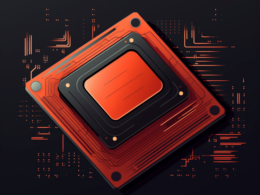ScyllaDB has earned a reputation as a high-performance database used by some of the most demanding organizations in the world. Discord, Expedia, and Comcast are among its notable users. The open-source NoSQL database provider recently announced that it has raised $43 million in a Series C3 round of funding, bringing its total funding to $100 million to date. The funding round was led by Eight Roads Ventures and AB Private Credit Investors, with participation from TLV Partners, Magma Ventures, and Qualcomm Ventures.
ScyllaDB’s Journey and Competition
Originally designed as a drop-in replacement for the Apache Cassandra database, ScyllaDB has evolved to compete with Amazon DynamoDB and MongoDB. With the new funding, ScyllaDB aims to expand its capabilities and take on MongoDB as a target competitor in the market. CEO Dor Lior emphasized the company’s focus on efficiency and cost reduction in the current market atmosphere.
ScyllaDB’s Deployment Options and Future Developments
ScyllaDB offers various deployment options, including open-source, enterprise, and cloud database-as-a-service solutions. The latest release is ScyllaDB 5, which has undergone continuous improvement since July 2022 to enhance database operations speed.
Looking ahead, CEO Dor Lior has his sights set on ScyllaDB 6, currently in development. ScyllaDB 6 will introduce an innovative concept called “tablets,” which will revolutionize database clustering. Tablets will enable faster scalability and load balancing across multiple servers, allowing organizations to easily add or remove capacity based on their workload requirements.
“The big innovation that ScyllaDB 6 will introduce is a concept the company calls – tablets. The basic idea behind tablets is to have a new, more scalable, faster way to grow a database cluster, than with existing NoSQL approaches.”
To achieve faster elasticity, ScyllaDB will leverage Raft consistent metadata, an open-source consensus protocol. This will allow for parallel database schema operations and simultaneous topology-changing operations, such as adding nodes.
While other companies in the database industry focus on supporting generative AI workloads, ScyllaDB has chosen a different path. CEO Dor Lior stated that ScyllaDB primarily caters to more traditional, non-generative AI use cases. While vector-based generative AI is not currently supported, it may be added to the ScyllaDB roadmap in the future.
“If you’re not in the very large-scale database business, then vector search is something you add but it’s not a unique difference because everybody will have it. We’re in a different ballgame and sometimes it’s good for us, sometimes it makes it very, very hard to implement things because we try to keep the level of consistency as high as we can.”










